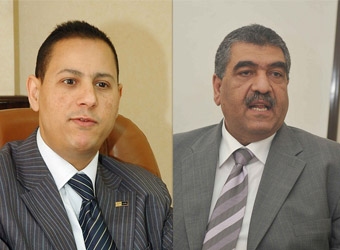The Egyptian Exchange (EGX) may become a joint stock company instead of a completely state-run organization, news agency MENA reported late Tuesday, citing Ashraf Al-Sharkawy, Chairman of Egypt’s financial watchdog – the Egyptian Financial Supervisory Authority (EFSA).
According to a draft proposal, banks, financial institutions, brokerage companies and individual investors could be shareholders in the new structure of the Bourse, but the state will hold a majority stake.
Al-Sharkawy said the proposal is about changing the legal structure of the Bourse. “This requires parliamentary legislation, so we will wait until a new parliament is elected,” he commented.
“The proposed legal structure allows more flexibility and accountability,” Mohamed Omran, EGX chairman told Ahram Online.
Omran added that it will be a political decision. “Neither the Bourse nor EFSA will have a hand in this,” he said.
In the long-term, Egypt’s Bourse could see full privatization, like most global stock exchanges, Omran suggests.
Mohamed Abdel-Salam, Chairman of Misr for Central Clearing, Depository and Registry (MCDR), said if the government becomes the main shareholder through a majority stake, the current situation in which the Bourse is controlled by the country through EFSA will remain the same.
Abdel-Salam said that it is not the first time that a plan to hand ownership of the stock exchange to shareholders has been proposed. “The first time I heard about this suggestion was back in 1997.”
According to official data, 96.5 billion shares were traded on the Egyptian Exchange between January and June 2012, representing an average turnover of EGP 13.8 billion ($2.3 billion).
The total market cap reaches LE352.5 billion ($58.7 billion).
Egypt currently leads the Middle Eastern stock exchanges, as its benchmark is up 41 per cent this year so far, followed by Dubai (16.5%), Tunisia (10.6%), Saudi Arabia (8.5%) and Abu Dhabi (6.3%).
Established in 1883, the Cairo-based stock exchange is the fourth oldest in the world.


